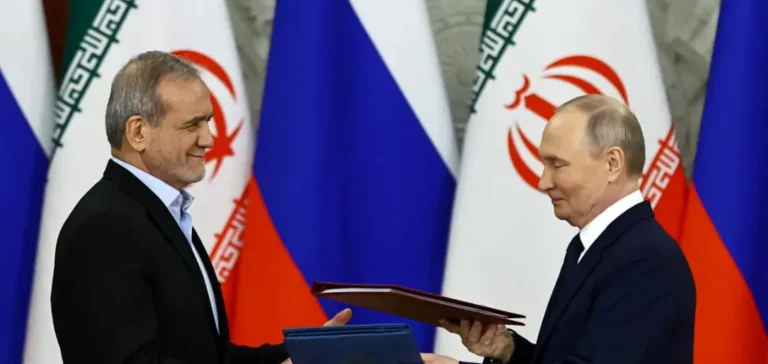Russia has proposed playing a concrete role in the complex negotiations surrounding Iran’s nuclear program, suggesting retrieval of excess enriched uranium to convert it into fuel for civilian use. This announcement comes amid stalled discussions between Iran and the United States regarding the management of sensitive nuclear materials, notably highly enriched uranium (HEU). Iran maintains its reserves comply with the limits set by the international agreement signed in 2015, known as the Joint Comprehensive Plan of Action (JCPOA). Washington, however, insists on completely eliminating the surplus enriched uranium, viewed as potentially usable for military purposes.
Russia’s involvement in negotiations
According to Sergei Ryabkov, Russia’s Deputy Minister of Foreign Affairs, this proposal could constitute an acceptable technical solution for both parties, provided they jointly approve the process. Dmitry Peskov, Kremlin spokesperson, confirmed that the proposal has not yet led to a formal agreement but remains conditional on bilateral approval. Russia, as a country with advanced nuclear infrastructure and a strategic ally of Iran, is positioning itself as a credible intermediary in these negotiations. Moscow already possesses proven industrial capabilities for converting enriched uranium into reactor fuel for civilian use.
The Russian proposal is not entirely new in its concept but comes within a context of bilateral negotiations that have stalled for several months. Diplomatic discussions between Iranian and American officials have recently occurred in Oman and Europe, yet they have failed to reach a final understanding regarding the management of Iranian nuclear materials. The central sticking point in negotiations precisely concerns defining and handling the surplus enriched uranium, for which evacuation to a third country frequently appears as a plausible yet unfinished option.
Potential implications for the energy market
If such an initiative were implemented, it would immediately increase the availability of nuclear fuel usable in the civilian energy sector. The resulting fuel could supply nuclear power plants, potentially even outside Iran, depending on specific agreements reached among the involved parties. For the international nuclear industry, converting enriched uranium into civilian fuel represents a well-established practice, although executing this process within such a complex diplomatic context would be unprecedented.
Russia already has confirmed experience managing sensitive nuclear stocks originating from other countries. It has previously ensured the transformation of enriched uranium from various sources in accordance with international non-proliferation standards. However, for this proposal to become operational, a precise agreement would need to clearly define technical, logistical, and regulatory modalities. At this stage, none of the involved parties has confirmed the finalization of such an agreement.






















